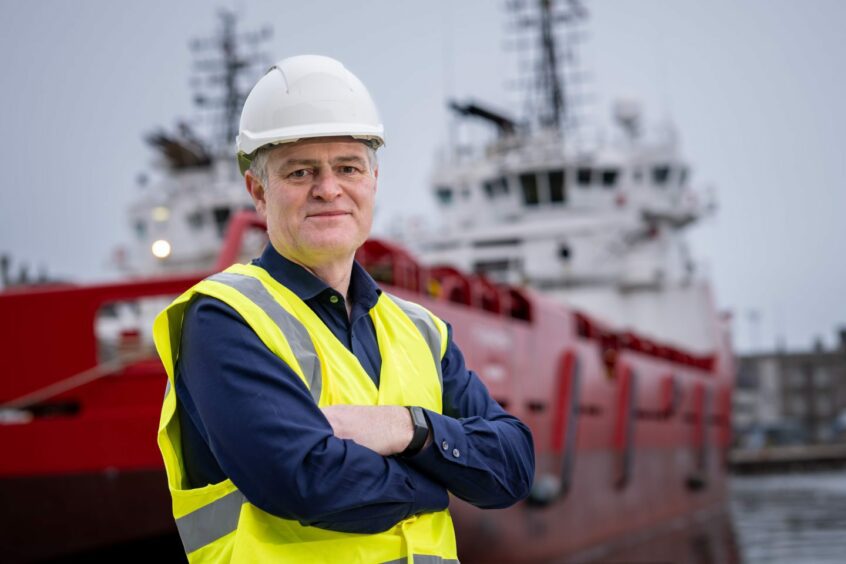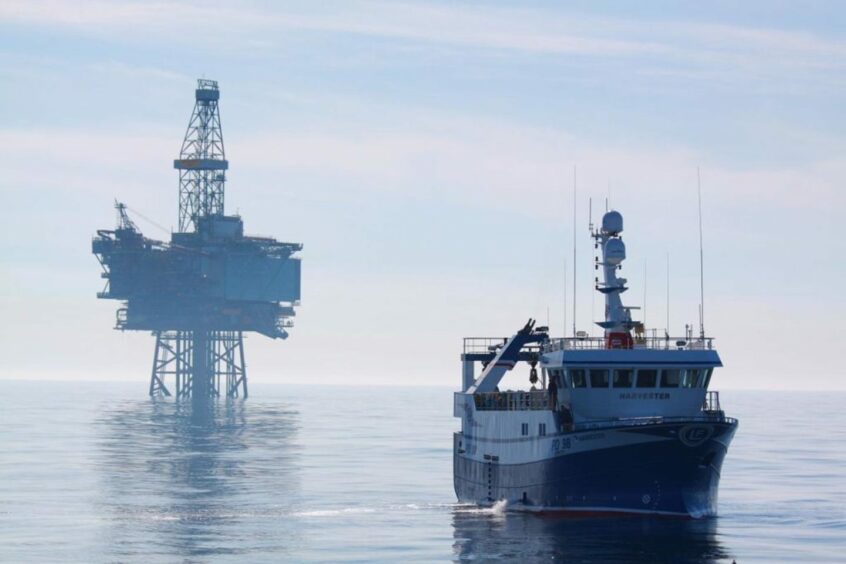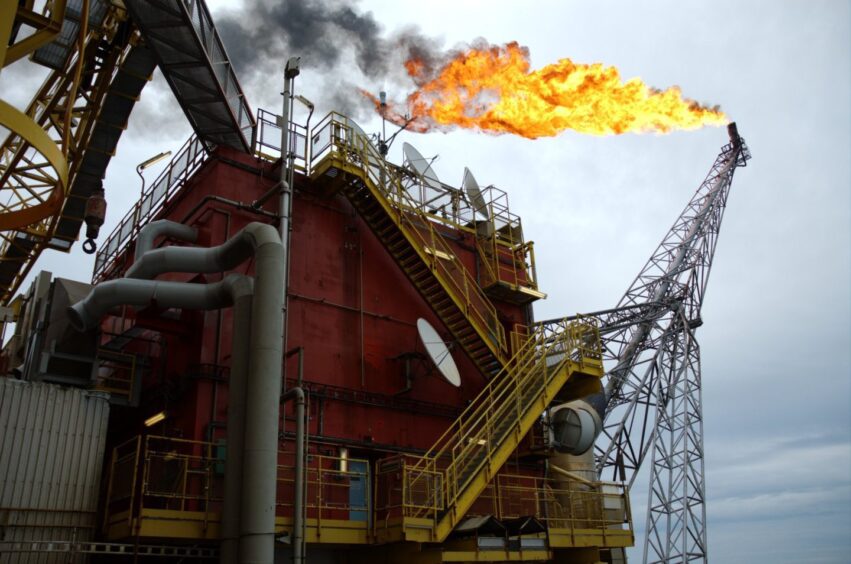
Over 200 energy industry leaders gathered in Aberdeen today as Offshore Energies UK (OEUK) held its first ever decarbonisation conference.
Speakers at the P&J Live lauded the progress made by the North Sea oil and gas sector, but also raised concerns that without government support the UK could soon be “lagging behind” global rivals in the race to secure the economic benefits of a net zero economy.
A report released by OEUK to coincide with the event revealed North Sea emissions have been slashed 24% since 2018.
OEUK says progress made, but hurdles remain
Opening the event, OEUK chief executive David Whitehouse said more needed to be done to simplify the regulatory and infrastructure hurdles faced by the oil and gas sector, particularly in electrifying assets.
He also said the UK was in a “global race” with the United States, China and the European Union to secure future jobs and realise the economic potential of a net zero economy.
Mr Whitehouse said while there was no way to achieve net zero without carbon capture and storage (CCS) and floating offshore wind projects, their development in the UK was being held back by policy decisions and lengthy regulatory processes.
He called for approval times to be halved to unlock the potential of CCS and floating offshore wind.
In addition, there was also a need for further clarity in the UK on the framework for non-pipeline transportation of carbon dioxide (CO2).
Mr Whitehouse said the extent to which the energy sector committed to decarbonisation would “define the legacy we leave behind” and that government support for the industry was an “investment in our future”, not a subsidy.
Concerns UK could soon be “lagging behind”
Also addressing the opening of the conference was Kent CEO John Gilley, who spoke about the work the energy services consulting firm was doing globally to help energy operators achieve net zero.
In his speech, Mr Gilley lauded the “world leading” reputation the UK had created in the decarbonisation sector, but warned the country risked “lagging behind” the US, China and the European Union.
“The capability within the UK is quite staggering,” Mr Gilley said.
“The track record in terms of the technology of carbon capture, utilization and storage, of offshore wind, of green and blue hydrogen, is quite phenomenal and the actual progress that the UK has made really is world leading.
“I do worry a little bit, in terms of the kind of processes and instruments that have been put in place in other geographies like the US with (President) Biden’s Inflation Reduction Act, the work that the Chinese have done and also the financial commitments that the EU has done, and that the UK could end up lagging behind somewhat.”
Government policy hampering emissions efforts
Mr Gilley said the decarbonisation efforts the sector was making in tackling climate change were “hampered by government policy”.
“Governments are short lived; every four years re-election is paramount, and it is a blocker to actually getting the types of frameworks in place that industry needs in order to secure projects and our clients need in order to make commercial decisions on FIDs (final investment decisions)”.
“So, a lack of transparency is a real challenge.”
Organisations also needed to increase collaboration efforts to achieve rapid decarbonisation, Mr Gilley said.
“In terms of (climate change), the greatest challenge of our time, it’s time for us to share knowledge instead of hoarding it to try and gain advantage over each other”, he said.
Oil and gas supply chain needed for decarbonisation
Representing the UK Department for Energy Security and Net Zero, director general for energy infrastructure Ashley Tibbett said the UK had made considerable progress.
“Between 1990 and 2021, we cut our emissions by 48%, decarbonising faster than any other G7 country,” he said.
“Renewable generation is currently six times greater than it was in 2010 and we are expanding to deliver up to 50 gigawatts of optional wind capacity by 2030.”
Mr Tibbett said while the UK continues to scale up its clean energy sources, the country would still rely on the oil and gas sector for decades to come, even when it came to decarbonisation.
“The oil and gas supply chain is exactly the supply chain the UK needs for the energy transition”, he said.
“The sector will play an important role in driving the development and delivery of low carbon technologies that will underpin the transition.”
Industry needs to maintain “social licence”
Mr Tibbett pointed to the North Sea Transition Deal as a “global exemplar” of government working with industry to deliver upstream emissions reductions while supporting the energy transition and thousands of UK jobs.
But he said it was imperative the industry continued to meet its emissions targets to maintain its “social licence to operate”.
“The deal made with industry was based on a quid pro quo,” he said.
“It was clear the government would support the sector in return for its contribution to net zero through decarbonising production.”
Mr Tibbett said the electrification of oil and gas platforms was crucial to meeting 2030 targets and would “ultimately help secure the future of the sector”.
UK government would work with industry to clear regulatory hurdles and urged companies to continue investing in emerging technologies such as CCUS, offshore wind and hydrogen, he said.
In addition, Mr Tibbett said by the end of the year the UK government intends to outline its vision for the deployment of CCS into the 2030s as well as award contracts in the second round of the Net Zero Hydrogen Fund.
Following the opening speeches, the first session focused on the scale of the decarbonisation challenge facing the global economy.
Speakers included A.T. Kearney Energy Transition Institute managing director Dr Romain Debarre, Total Energies UK head of environment and CFR Elaine Yeoman and OEUK environmental manager Caroline Brown.
Later in the day, a range of presentations discussed themes ranging from the electrification of offshore oil and gas production facilities to reducing methane emissions, technological innovation and emissions trading schemes.
The final panel discussion focused on the potential to “repurpose” the North Sea by transforming dormant oil and gas assets into renewable energy hubs.
Recommended for you


 © Supplied by OEUK
© Supplied by OEUK © Supplied by Unsure
© Supplied by Unsure © Shutterstock
© Shutterstock